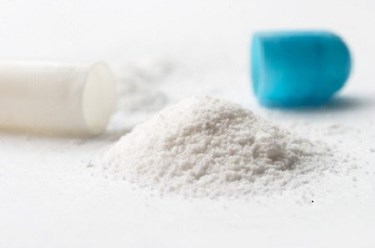Immunomedics Receives FDA Orphan Drug Status For IMMU-132 In Pancreatic Cancer
By Cyndi Root

Immunomedics announced in a press release that the Food and Drug Administration (FDA) has granted Orphan Drug status to IMMU-132. The antibody-drug conjugate (ADC) is for the treatment of pancreatic cancer. The FDA previously granted orphan drug status to IMMU-132 for small-cell lung cancer. Orphan status confers developmental advantages and marketing exclusivity, among other benefits.
Cynthia L. Sullivan, President and CEO of Immunomedics, said, "This is the second orphan designation from the FDA for IMMU-132, which has demonstrated activity in patients with advanced pancreatic cancer, as well as partial responses in 5 other types of solid cancer.”
IMMU-132
IMMU-132 is a humanized antibody (hRS7). It binds to the trophoblast cell-surface antigen (TROP-2), which is expressed by many human tumors. TROP-2 has limited expression in normal human tissue but is active in breast, cervix, colon, liver, lung, and many other cancers. Following binding to TROP-2, the hRS7 antibody incorporates itself into the cancer cell, making IMMU-132 a good candidate for delivering cytotoxic drugs.
Investigators believe that if they attached SN-38, standard therapy for patients with metastatic colorectal cancer, to a tumor-targeting antibody like IMMU-132, the concentration of the tumor killing agent would increase while limiting gastrointestinal and hematologic toxicity. The hypothesis arose from the preclinical studies indicating that IMMU-132 delivers 120-times the amount of SN-38 to a human pancreatic tumor compared to irinotecan alone.
IMMU-132 Studies
At the American Association for Cancer Research Special Conference on Pancreatic Cancer: Innovations in Research and Treatment, Immunomedics presented results from a study of 13 pancreatic cancer patients who had failed one to five prior therapies. After receiving doses of IMMU-132, patients showed a median time-to-progression of 12.7 weeks, which, when compared to the median 8.0 weeks from the prior therapy, showed a favorable result.
On June 2, 2014, Immunomedics reported results on IMMU-132 from Phase I/II studies of five kinds of cancer. Results from patients with metastatic solid cancers showed that 71 percent had durable disease stabilization after receiving treatment. Fifteen percent of patients with colorectal, small-cell and non-small-cell lung, esophageal, and triple-negative breast cancers showed tumor shrinking as measured by computed tomography (CT).
